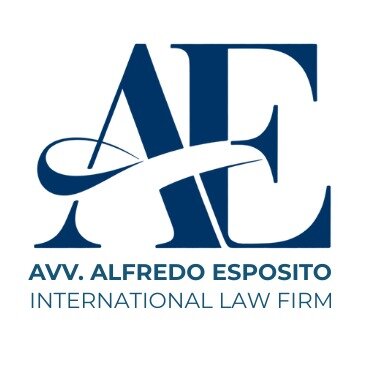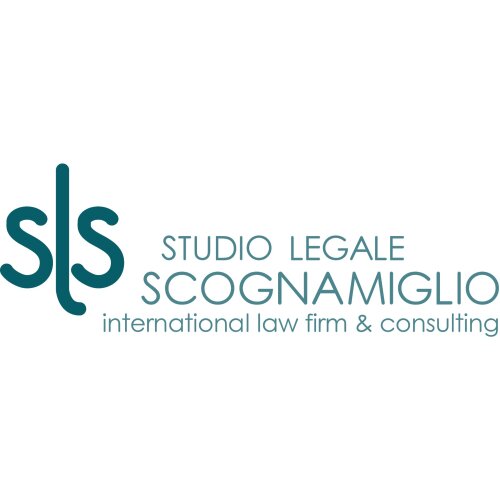Best Art & Cultural Property Law Lawyers in Naples
Share your needs with us, get contacted by law firms.
Free. Takes 2 min.
List of the best lawyers in Naples, Italy
About Art & Cultural Property Law in Naples, Italy
Art & Cultural Property Law in Naples, Italy, is an intricate field of law designed to protect, manage, and preserve the nation's artistic and cultural heritage. Naples, being a city with a rich historical and cultural tapestry, faces unique challenges and opportunities in this legal area. Governed by both national and European Union regulations, cultural property law encompasses a wide range of issues including the protection of archaeological sites, regulation of art transactions, and prevention of illicit trafficking of cultural goods. Lawyers specializing in this field must often navigate complex legal frameworks to ensure compliance and safeguard Italy's cultural treasures.
Why You May Need a Lawyer
There are numerous instances where individuals and entities may require the expertise of a lawyer specializing in Art & Cultural Property Law in Naples. Some common situations include:
- Legal guidance for museums or galleries regarding the acquisition or restitution of art pieces.
- Representation in disputes over the ownership or provenance of cultural artifacts.
- Advice on conserving and protecting historical landmarks or properties.
- Assistance to artists and cultural institutions in navigating copyright and intellectual property concerns.
- Support for private collectors in ensuring compliance with local and international regulations.
- Legal representation in criminal cases involving art theft or illegal exportation of cultural property.
Local Laws Overview
The legal landscape surrounding art and cultural property in Naples is governed by a combination of Italian national laws, regional regulations, and international treaties. Key legal texts include:
- The Italian Cultural Heritage and Landscape Code, which lays foundational guidelines for the protection of Italy's cultural assets.
- Regional statutes unique to Campania that dictate the management and preservation of local cultural sites.
- The UNESCO 1970 Convention, which Italy ratified to combat the illicit import, export, and transfer of ownership of cultural property.
- European Union directives and regulations that also impact the governance of cultural heritage, particularly regarding cross-border transactions and cooperation.
Frequently Asked Questions
What constitutes cultural property under Italian law?
Cultural property includes objects, sites, and artifacts of artistic, historical, paleontological, ethnographic, or archaeological significance. This encompasses a broad range of items from ancient ruins and historical buildings to works of art and manuscripts.
Can cultural property leave Italy for exhibitions or sales?
Exporting cultural property from Italy requires a special permit from the Ministry of Cultural Heritage and Activities. Unauthorized exportation is subject to severe penalties, including fines and imprisonment.
How does the process of art restitution work in Italy?
Art restitution involves returning stolen or illegally exported cultural objects to their rightful owners or countries. In Italy, this process may involve legal proceedings and cooperation with international bodies like UNESCO or INTERPOL.
What should I do if I inherit artwork or artifacts?
If you inherit artwork or artifacts, it’s advisable to consult with a lawyer to ensure that these items are documented, authenticated, and that you comply with any legal obligations, such as registration with cultural authorities.
Are there special legal protections for artists in Italy?
Yes, Italian law provides specific rights for artists, including moral rights and economic rights over their works. These include the right to be credited for their creations and to protect the integrity of their works.
What happens if I find an archaeological artifact on my property?
In Italy, if you discover an archaeological artifact on your property, you are required to report it to the authorities. Failure to do so may result in legal repercussions. The state generally has a claim to newly discovered artifacts.
How are disputes over provenance resolved?
Disputes over provenance can often involve complex legal challenges. Legal resolution may require the expertise of provenance researchers, historians, and legal professionals who specialize in art law.
Can digital art be protected under Italian cultural property laws?
Yes, digital artworks can be protected, particularly under intellectual property laws. However, the classification and specific protections might differ from traditional artworks.
What legal measures exist to combat art thefts in Naples?
Italy employs both preventive measures and law enforcement resources to combat art thefts. This includes increased security at heritage sites, collaboration with international law enforcement, and strict legal penalties for perpetrators.
How are the rights of indigenous communities protected in the realm of cultural property?
Rights of indigenous communities are protected through national and international laws that recognize their claims and interests in cultural heritage. These laws emphasize the need for consultation and consent in using indigenous cultural property.
Additional Resources
For further information and assistance, you may consider reaching out to the following resources:
- The Ministry of Cultural Heritage and Activities and Tourism (Ministero per i Beni e le Attività Culturali e per il Turismo) offers guidance on legal regulations.
- The National Heritage Protection Department, which manages areas related to ancient and artistic heritage protection.
- The International Council of Museums (ICOM) provides standards and best practices in museum operations and cultural property.
- The Association of Cultural Heritage Lawyers in Italy offers networking and legal aid resources for practitioners.
Next Steps
If you require legal assistance in Art & Cultural Property Law, consider taking the following steps:
- Identify the specific legal issue or concern you are facing within art and cultural property law.
- Consult with a specialized lawyer who has experience in Italian and international cultural property issues.
- Gather any relevant documentation or evidence you may have concerning your case or consultation needs.
- Reach out to legal resources or associations that specialize in cultural property law for referrals or support.
Taking these steps will help ensure you receive the necessary legal guidance and support to address your art and cultural property law needs in Naples, Italy.
Lawzana helps you find the best lawyers and law firms in Naples through a curated and pre-screened list of qualified legal professionals. Our platform offers rankings and detailed profiles of attorneys and law firms, allowing you to compare based on practice areas, including Art & Cultural Property Law, experience, and client feedback.
Each profile includes a description of the firm's areas of practice, client reviews, team members and partners, year of establishment, spoken languages, office locations, contact information, social media presence, and any published articles or resources. Most firms on our platform speak English and are experienced in both local and international legal matters.
Get a quote from top-rated law firms in Naples, Italy — quickly, securely, and without unnecessary hassle.
Disclaimer:
The information provided on this page is for general informational purposes only and does not constitute legal advice. While we strive to ensure the accuracy and relevance of the content, legal information may change over time, and interpretations of the law can vary. You should always consult with a qualified legal professional for advice specific to your situation.
We disclaim all liability for actions taken or not taken based on the content of this page. If you believe any information is incorrect or outdated, please contact us, and we will review and update it where appropriate.










